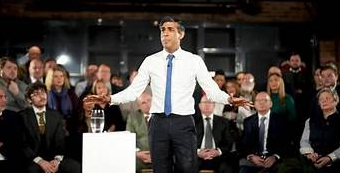I’m starting to think this is not an election year after all.
I have a shirt in my wardrobe that I can no longer wear—it doesn’t fit anymore. Occasionally, I think about getting rid of it, but I can’t quite bring myself to do it. It’s a nice shirt, and I still hold on to the faint hope that one day, somehow, it will fit again, and I’ll be able to wear it. Throwing it away seems so final, and the possibility of it fitting again, however small, keeps me from parting with it.
This situation feels somewhat analogous to the current state of British politics as we approach the supposed election year of 2024. Prime Minister Rishi Sunak, back in December, reassured the press that 2024 would indeed be an election year, even hinting that it would likely take place in the latter half of the year. But now, as the months pass, I find myself increasingly wondering if Sunak, like me with my shirt, is reluctant to let go of the idea of avoiding an election. A 2025 general election is starting to feel more and more likely as the year unfolds.
Sunak’s government has been marked by indecision and a reluctance to confront the pressing issues facing the country. While he may have set an electoral deadline, it’s becoming increasingly apparent that he could find ways to delay it further. This would be a troubling development for a government that has already faced significant challenges, not least the erosion of public trust and growing discontent with its leadership.
As time goes on, the possibility of a delayed election in 2025 begins to feel more plausible. The political landscape continues to shift, and the government’s hesitation may lead to a situation where waiting another year is seen as the safer option. The longer Sunak delays, the more difficult it will become to face the voters. And just like that shirt in my wardrobe, the election may be postponed indefinitely—until it no longer seems possible to avoid.

